Cairo University Hosts 600 Imams and Preachers from Ministry of Religious Endowments in an Educational Symposium
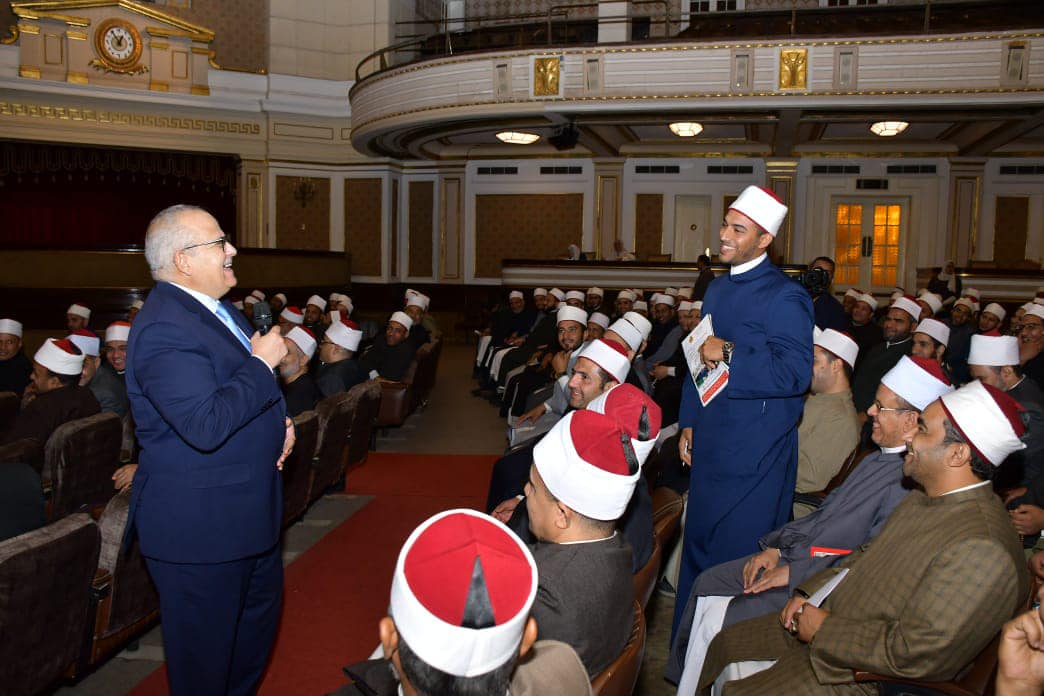 close
close
![]()


Cairo University organized an educational program for 600 imams and preachers from the Ministry of Religious Endowments under the patronage of Dr. Mohamed Mukhtar Gomaa, Minister of Endowments, and Dr. Mohamed Othman Elkhosht, President of the University, in the Grand Celebration Hall, aiming to identify the intellectual role of Cairo University, its role in renewing religious discourse, its history, and its local and global role. This falls under the framework of implementing the cooperation protocol signed by both the university and the Ministry of Religious Endowments for the better preparation, continuing training, and general advancement of imams and preachers in various fields, in a manner that contributes to supporting the Egyptian state’s orientation toward combating destructive and extremist ideas, and striving for a balanced religious discourse free from fanaticism.
There were many activities in the educational program, including the screening of a documentary about Cairo University entitled “History, Present, and Future,” a lecture by Dr. Mohamed Elkhosht on the intellectual role of Cairo University and its project for establishing a new type of religious discourse, and a speech by Dr. Al-Sayyid Musaad, Undersecretary of the Ministry of Religious Endowments for Giza Governorate, in addition to two lectures each given by Dr. Abdullah Al-Tatawi, cultural advisor to the university president, and Dr. Muhammad Mansour Haiba, media advisor to the university president, which discussed national identity and the role of the media in shaping awareness. The program concluded with an exemplary recitation of the Holy Qur’an undertaken by some of the imams present, with the participation of all attendees.
During his lecture, Dr. Mohamed Othman Elkhosht said, “This educational program is a happy event in the life of Cairo University, hosting a noble gathering of imams from the pulpits of Egypt and the Ministry of Religious Endowments, who represent the first line of defense against extremism and terrorism by propagating true religion and preaching moderation.” This symposium, he stressed, forms part of a larger framework of fruitful cooperation with the Ministry of Religious Endowments under the auspices of His Excellency Dr. Muhammad Mukhtar Gomaa, Minister of Religious Endowments. This cooperation has opened up new areas hitherto nonexistent, especially with the need to diversify and multiply our sources of knowledge, and constitutes a response to some of what the earlier sheikhs of the Ministry of Religious Endowments had suggested. He furthermore stressed the longstanding relationship between the university and the Ministry of Religious Endowments; each of them, he says, forms a part of the other. Imams, therefore, he said, are truly representatives of moderation and enlightenment.
.
Dr. Elkhosht went on to say that one of the most important features of the Enlightenment Document is the transformation of Cairo University into a fourth-generation university by means of enabling value creation, introducing tools that enable the individual to create cognitive value, and activating the university’s role in creating scientific research that benefits society. The university also takes part in a large number of projects implemented by various ministries and sectors of industry, trade, and agriculture, its main criterion being that the project should benefit people; knowledge that benefits no-one, he said, is worthless. The first generation of universities, he pointed out, was based on copying and memorizing information and knowledge; the second combined education with empirical research; while the third generation focused on combining education and scientific research while adding value to the economy. Practical benefit to the public, he pointed out, was not previously gained from research.
Dr. Elkhosht pointed out that the plurality of truths means that the same thing may have more than one meaning. 75% of the verses of the Holy Qur’an have multiple meanings and connotations, which is why religious jurisprudents disagree. To develop a new era in religion requires a return to the original principles of faith; the implementation of empirical reason; critical thinking; and the restoration of the now-forgotten first Islam on which the nation was founded, returning to this first Islam in a contemporary manner. He pointed out that the beginning of the modern European Renaissance was when Martin Luther changed Catholic religious doctrine in the Middle Ages, eschewing Indulgences, and emphasizing a direct relationship between God and man without intermediaries.
Dr. Elkhosht also stated that Cairo University, in recent years, has managed many fundamental achievements, foremost among which are transcending the idea of narrow and isolated specializations; building an open and up-to-date system of thinking; developing personalities capable of working intellectually; and creating an educational environment that stimulates the spirit of discovery, creativity, and academic freedom. In addition, there must be no discrimination on any social, religious, or ethnic basis; everyone must be governed by the principle of citizenship. Explaining that the university seeks to bridge the knowledge gap with the developed world, he clarified that this does not mean abandoning our society’s identity or cultural specificity, but rather creates shared spaces by which we may join fourth-generation universities while preserving our unique identity and culture. The Egyptian identity is enlightened, based on coexistence and accepting the Other.
.
The Undersecretary of the Ministry of Religious Endowments Dr. Sayed Massad explained that God has spoken of all types of knowledge, and that it is a misconception to view “knowledge” in the Qur’an as being limited to the sciences of Sharia and other religious sciences and hadith only. Rather, the Holy Qur’an calls upon us to adopt knowledge that comprises all the sciences that help to populate and build the Earth under the umbrella of religion. Holy Scripture says, “He created you from the earth and settled you therein,” and “Only among His servants are scholars who fear God.” This verse indicates that knowledge should be taken to comprise all the sciences. Surat Al-Rum also mentions difference in languages, which constitutes implicit encouragement to work in any field of science as long as it does no harm.
The Undersecretary of the Ministry of Religious Endowments pointed out that the Ministry has taken upon itself the role of educating both laymen and imams, being a source of culture and knowledge.
Dr. Muhammad Mansour Heiba, media advisor to the university president, explained that preachers and media professionals are two sides of the same coin with differing methods and means. He stressed the necessity of integrating their visions, “as they are all bearers of a message aimed at advancing and saving the nation, preserving self and identity, and teaching the nation’s people and youth critical thinking and awareness of the interests of its society.” He pointed out that most media in Muslim societies is government-controlled and addresses a variety of societal issues by turning to established religious texts with incontrovertible proof and well-defined meanings. Furthermore, it must work to protect future generations, as the media must be cognizant of its role in safeguarding the Egyptian state.
.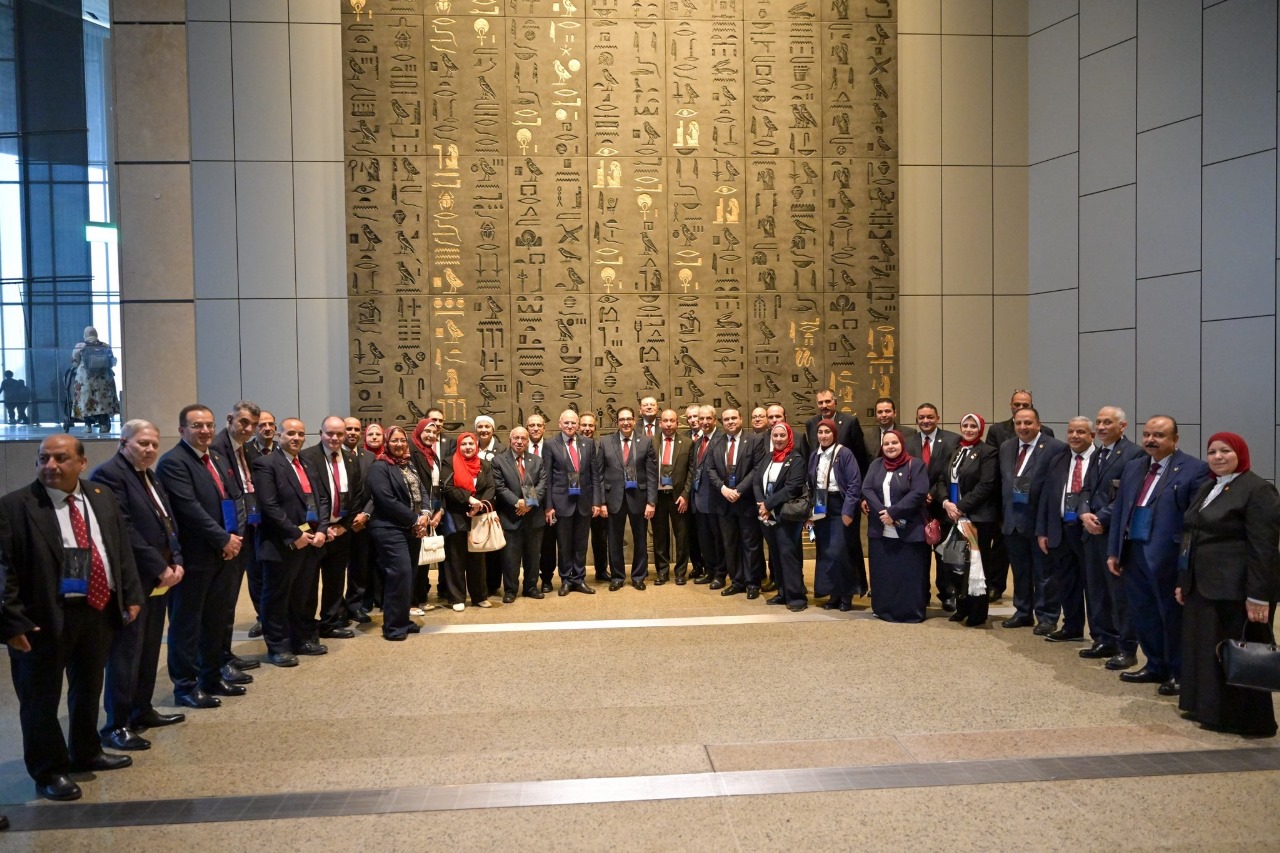
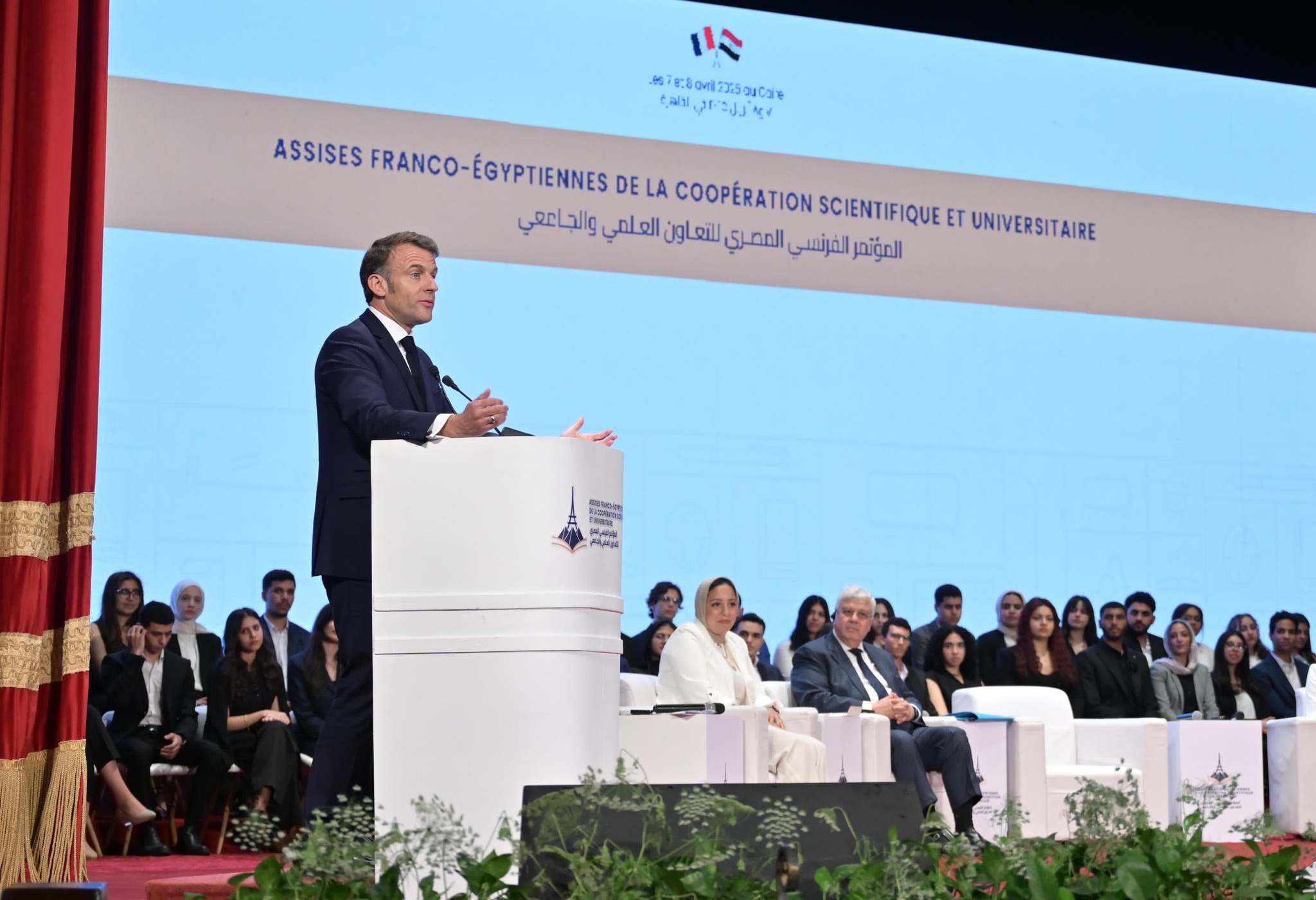
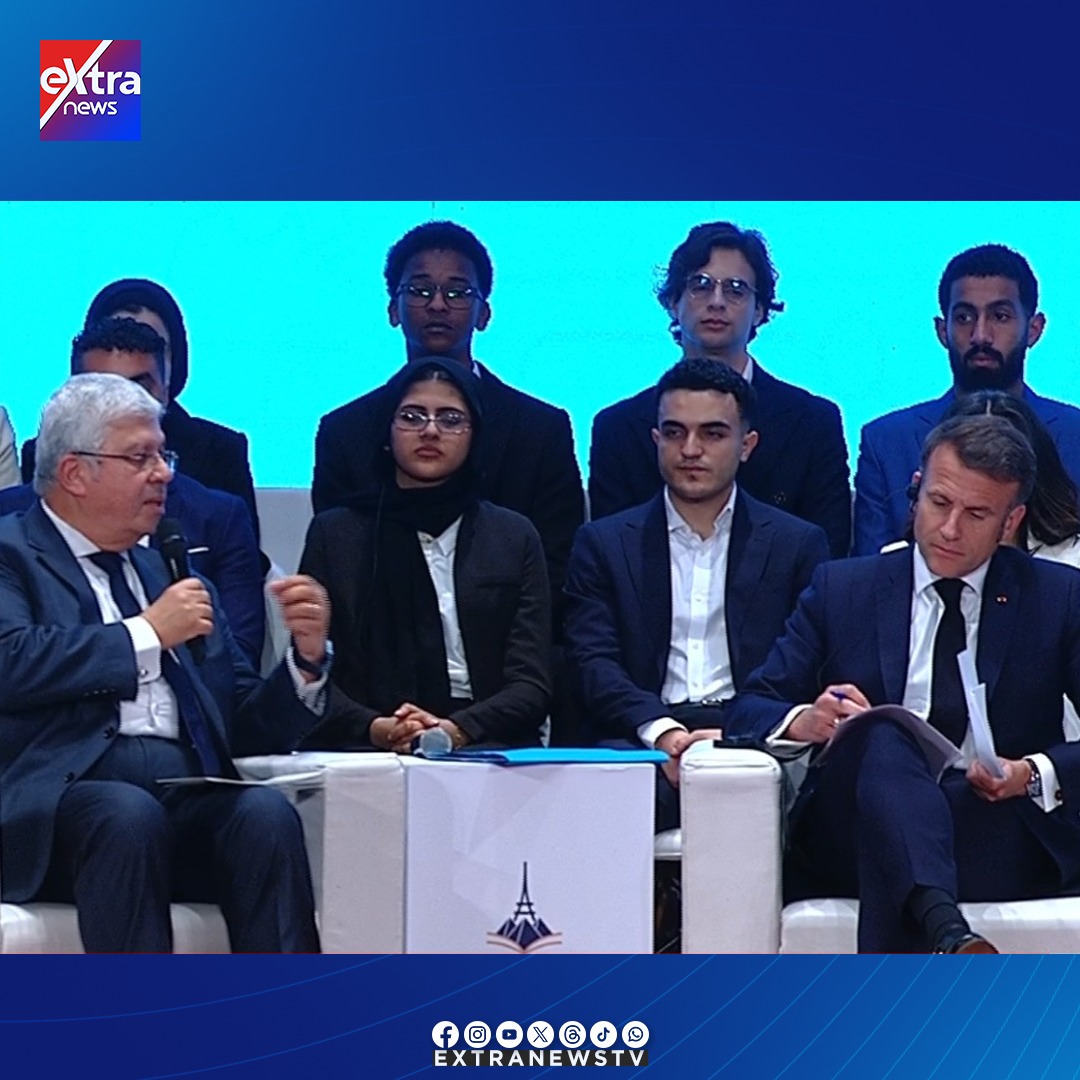

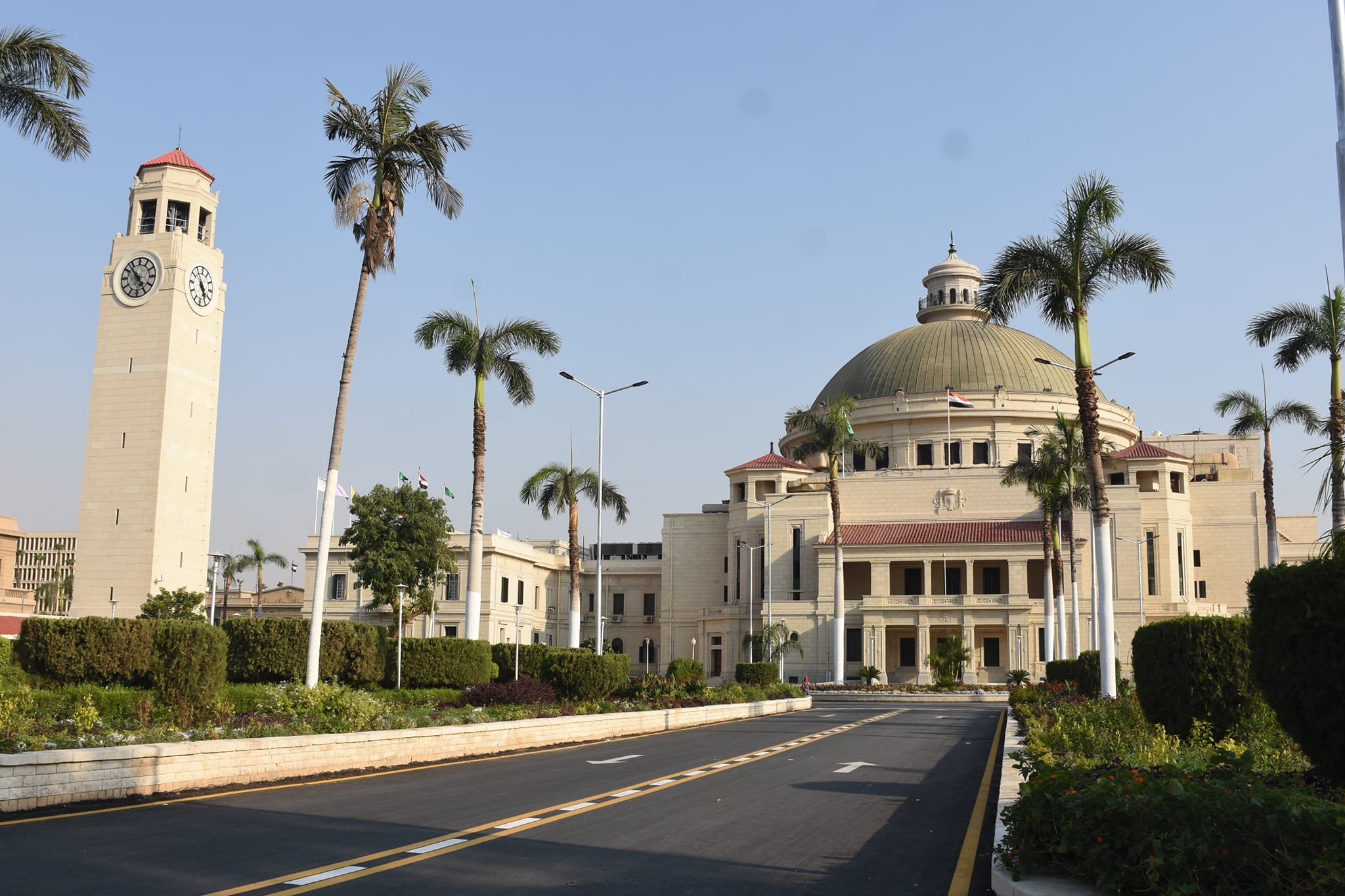

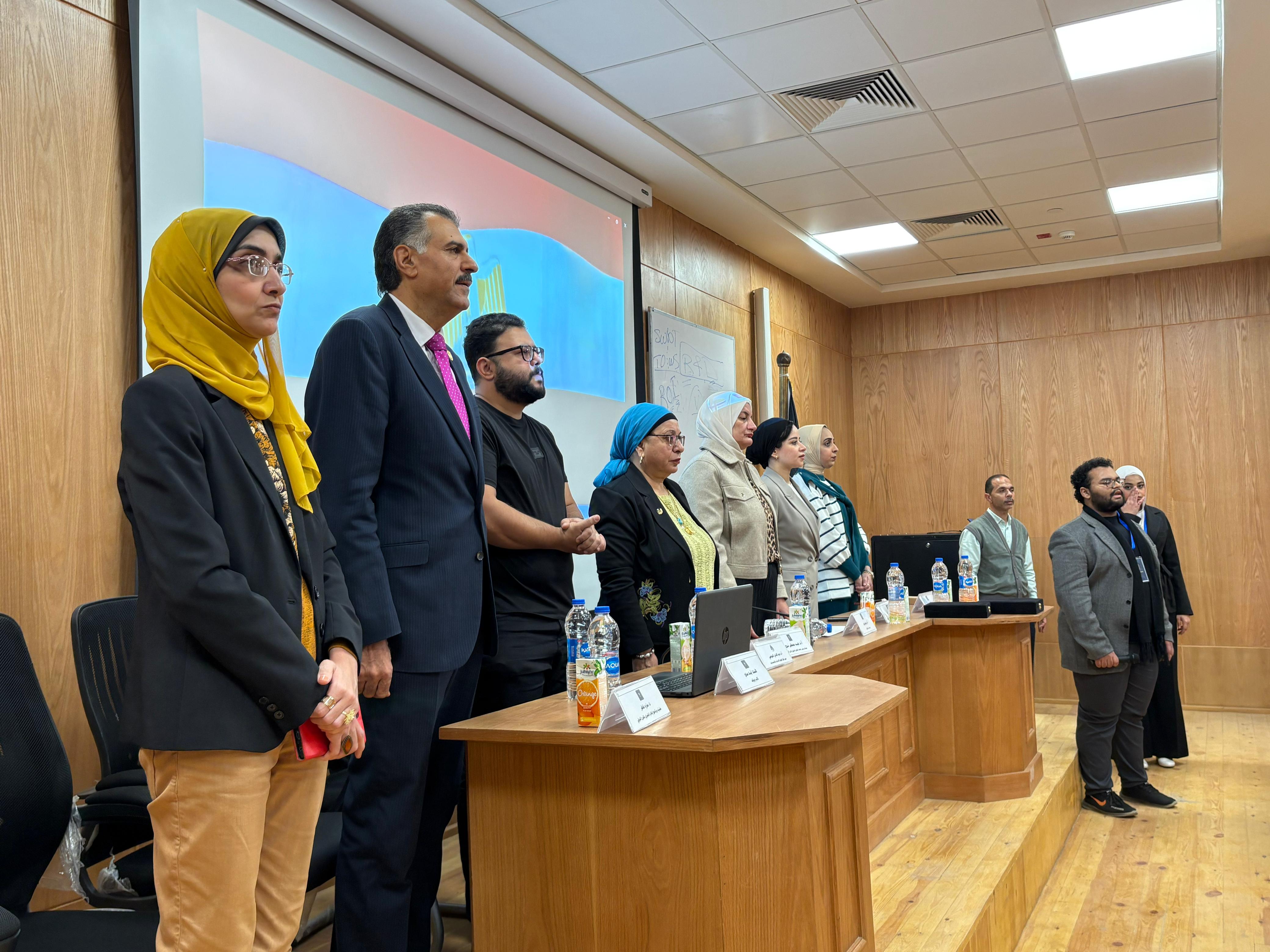
15-02-2026 Faculty of Mass Communication

15-02-2026 Sports
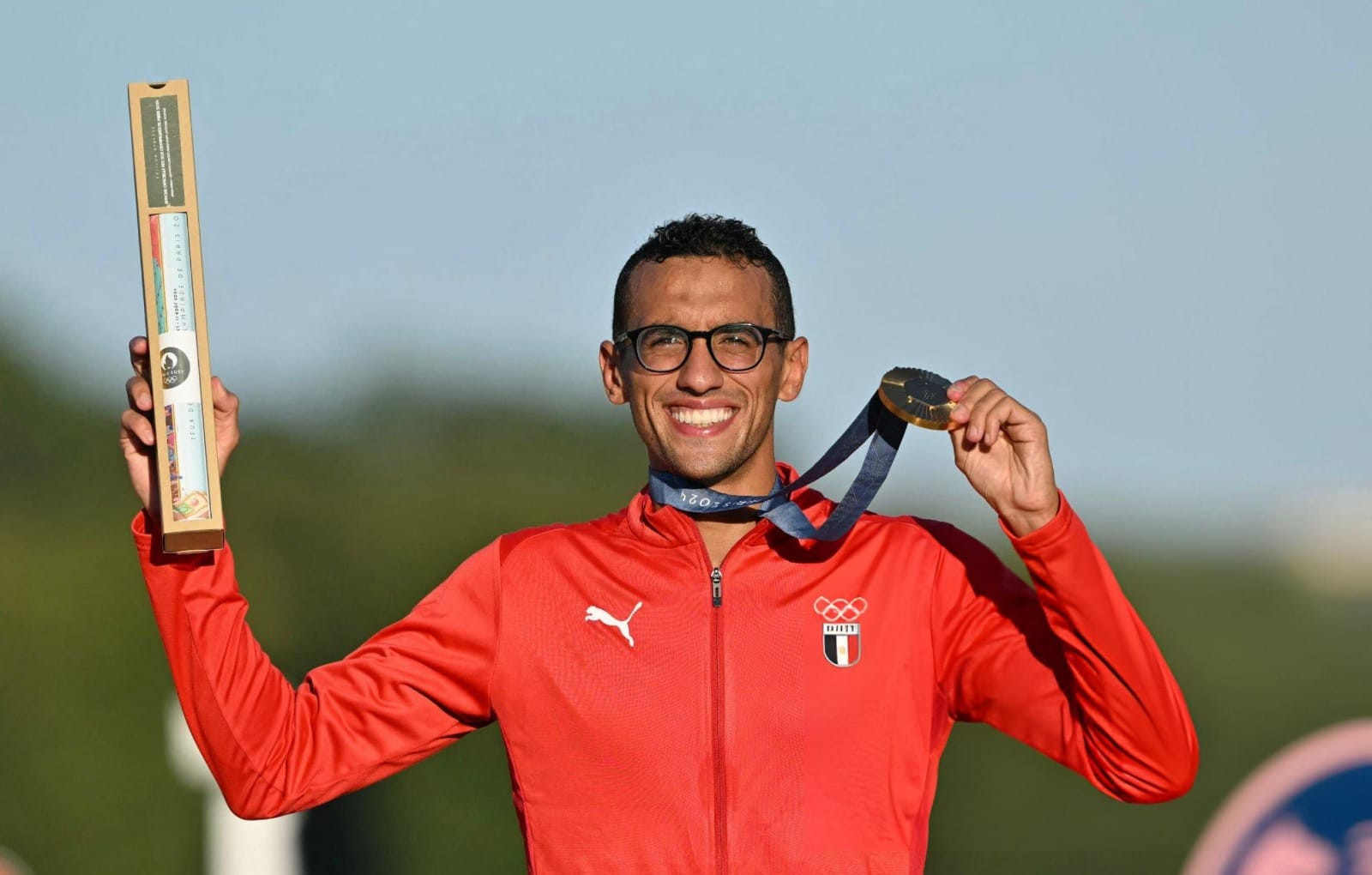
15-02-2026 Sports
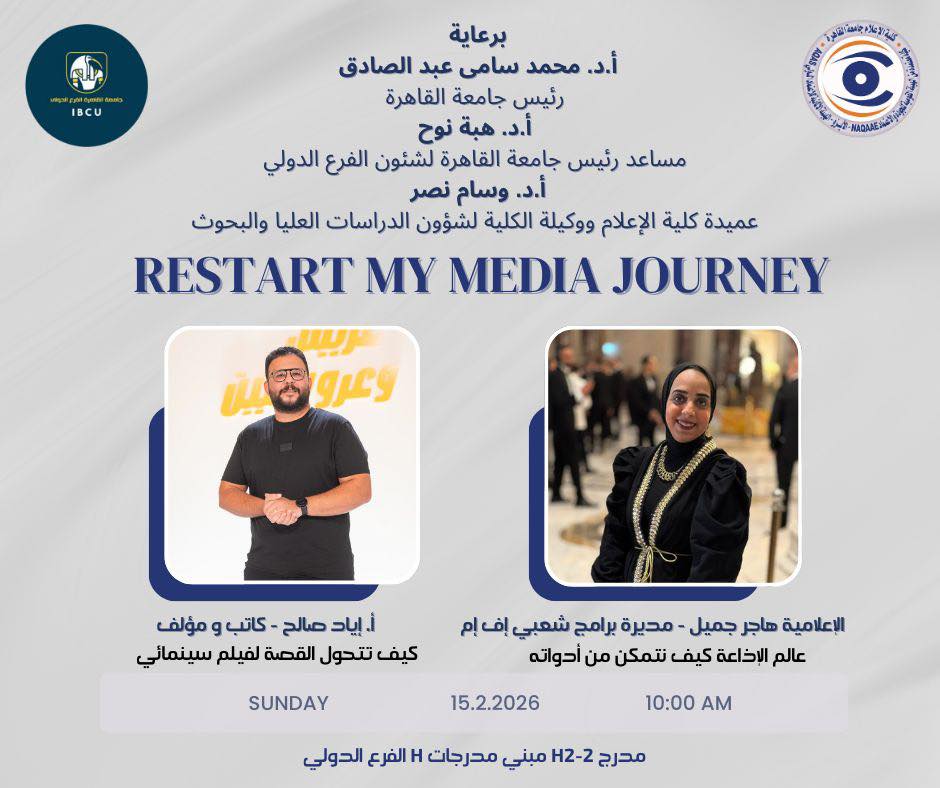
15-02-2026 Faculty of Mass Communication
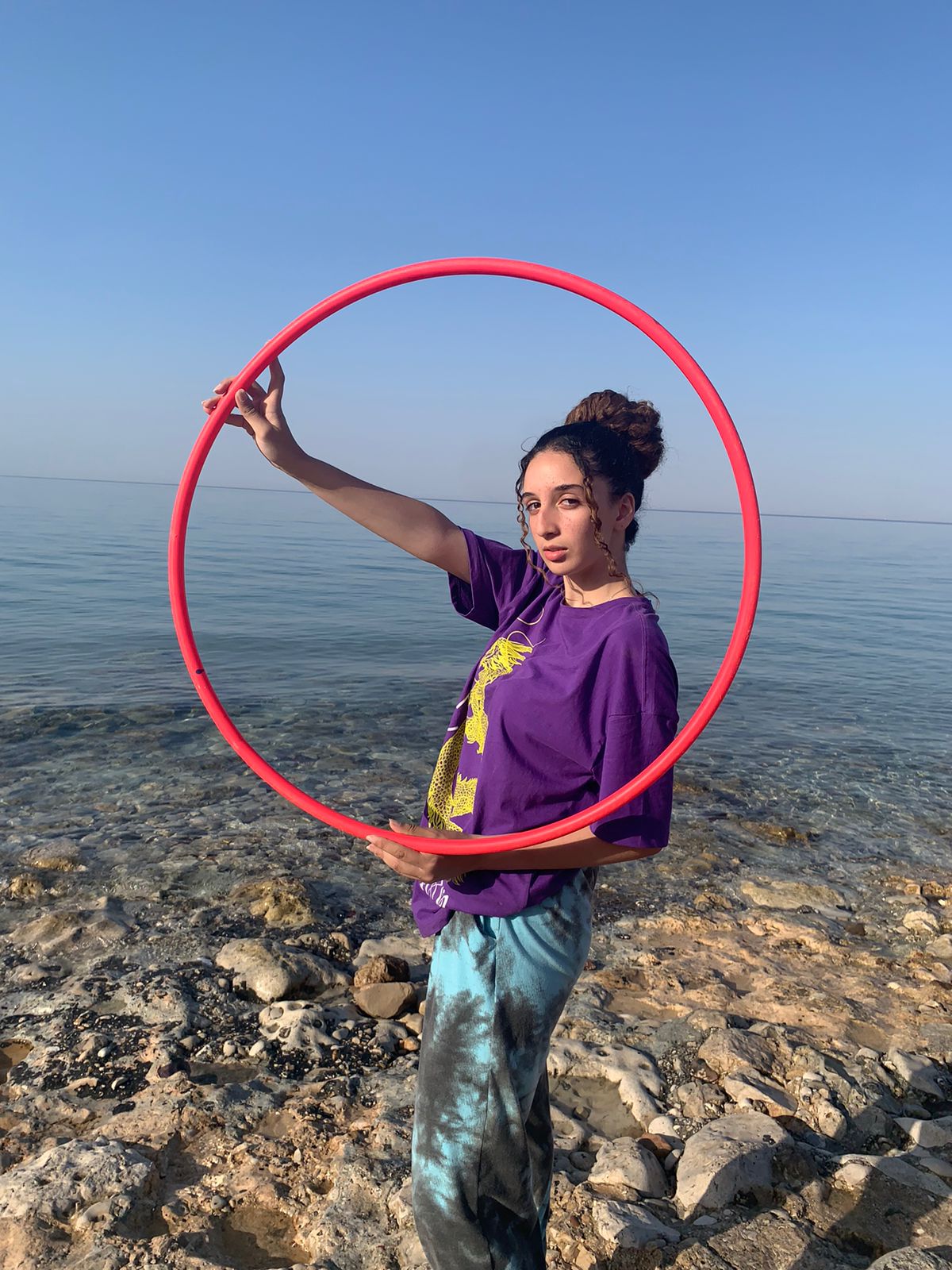
23-06-2023 Sports 4147
...
tips from the head of dmc channels group- mr.hesham soliman02-08-2023
video 3394...
Exclusive Interview with the Prominent Host (Eman Ezz Eldin) for EMccu today27-10-2022
video 1225...
Culture of Photos Event Guests` Interviews (Pt.2)01-04-2023
video 1139...
Culture of Photos Event Guests` Interviews (Pt. 1)01-04-2023
video 1022...
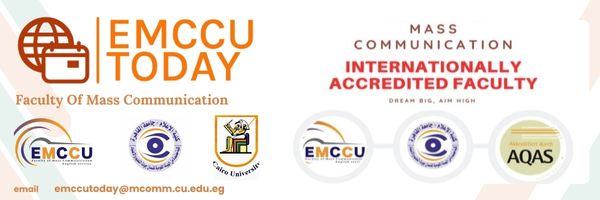
27-10-2022
video 3840